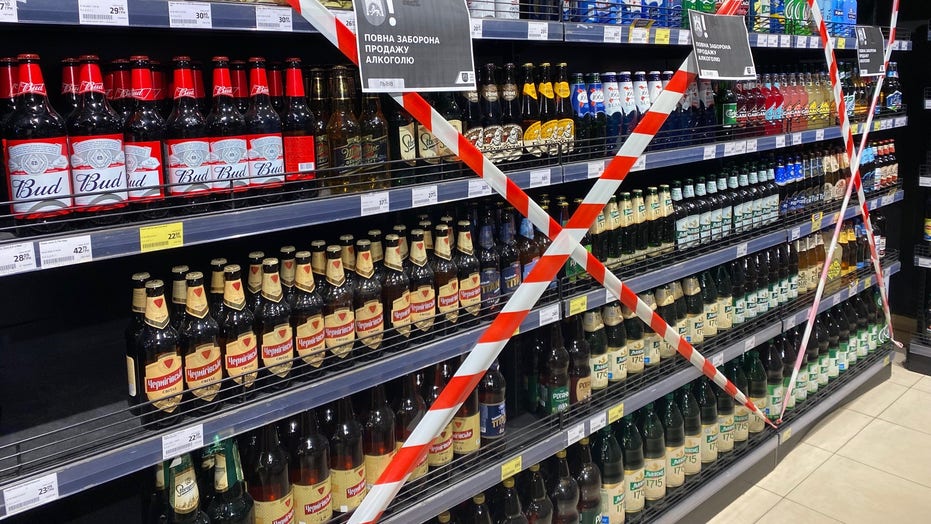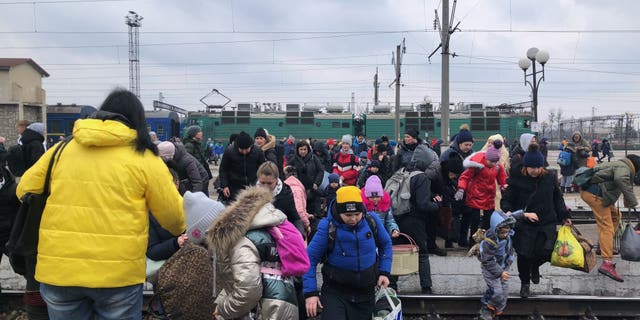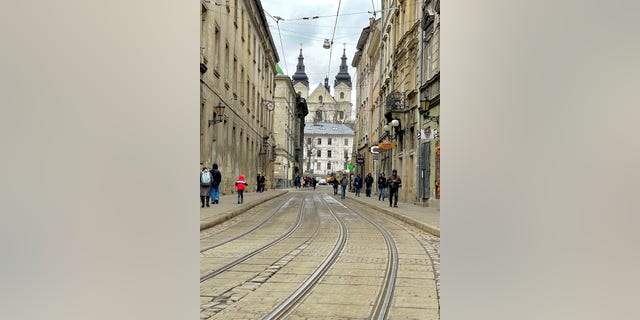Civilians fleeing Irpin, Ukraine as Russian shelling rains down
Fox News foreign correspondent Trey Yingst discusses with ‘The Ingraham Angle’ what civilians are experiencing on the ground in Ukraine.
LVIV, Ukraine – I saw a sign outside a small travel agency in Lviv on Tuesday that read, “Enjoy the World.”
For many here in Ukraine, the world they once knew is gone.
Millions have been forced from their homes, fleeing relentless Russian artillery that has left cities like Kharkiv and Mariupol in flames, apartment buildings destroyed.
Russia’s war on Ukraine has sparked the biggest European mass migration since World War II.
(Fox News/Bryan Allman)
Carrying what they can, Ukrainians are heading for the border, enduring days-long waits to cross into Poland, Hungary, Romania and Slovakia in what’s become the biggest European mass migration since World War II.
At the train station in Lviv, families huddle outside against the cold, hoping to find a way to safety. Inside, the corridor to the platform is shoulder to shoulder as people inch forward. There are simply not enough trains and not enough seats to accommodate all the passengers.
Lviv’s once-busy streets have emptied out.
(Fox News/Dallas Hill)
Lviv is a city the size of Boston, its cobblestone streets lined with stately buildings evoking Paris or Rome. Usually bustling with tourists, it’s since become very quiet. Most of the stores are closed with no indication they’ll reopen in the foreseeable future. Even some of the city’s ubiquitous coffee kiosks are shuttered. Restaurants and bars remain open but are serving only soft drinks.
There is a nationwide ban on alcohol sales and at a supermarket, watchful employees and large strips of tape ward would-be shoppers away.
A supermarket in Ukraine blocking off alcohol to shoppers.
(Fox News/Andrew Fone)
The once-full shelves of food are noticeably barer than they were a week ago. Staples such as canned fish and pickles are gone.
Not seen so far is the kind of panic buying that usually accompanies catastrophic events. There’s a sense of collectivism here, that we’re all in this together; take what you need and no more.
Source: Read Full Article




